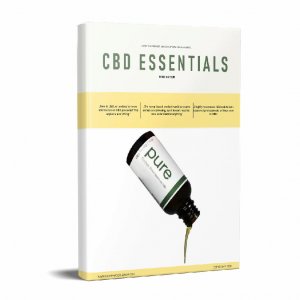Delta-8-THC, a lesser-known variant of the more common Delta-9-THC, has been gaining popularity recently, touted as a milder, more relaxing alternative to traditional cannabis products. Delta-8-THC has shown promise in helping with anxiety, pain relief, and even appetite stimulation, but like any substance, it comes with its own set of potential side effects. In this article, we’ll explore the potential side effects of Delta-8-THC, their severity, and what you can do to minimize them.
What is Delta-8-THC?
Delta-8-THC, or Delta-8-tetrahydrocannabinol, is a cannabinoid found in the cannabis plant, just like Delta-9-THC, the primary psychoactive compound in cannabis. Delta-8-THC is structurally similar to Delta-9-THC but has some notable differences in its effects on the body.

Delta-8-THC is typically extracted from hemp, which is legal under federal law, but the legality of Delta-8-THC is somewhat of a gray area, with some states banning it outright.
Side Effects of Delta 8 THC
While Delta-8-THC is said to be milder and less potent than Delta-9-THC, it can still have some negative side effects, including:
Dry mouth
One of the most common side effects of Delta-8-THC is dry mouth, also known as cottonmouth. This happens because Delta-8-THC can inhibit the production of saliva, leading to a dry, sticky mouth feeling. Drinking plenty of fluids and staying hydrated can help combat this side effect.
Red eyes
Another common side effect of Delta-8-THC is red, bloodshot eyes. This happens because Delta-8-THC can lower blood pressure, causing the blood vessels in the eyes to dilate. Over-the-counter eye drops can help alleviate this side effect.
Increased heart rate
Delta-8-THC can also cause an increased heart rate in some people. This is because it can lower blood pressure, prompting the heart to beat faster to compensate. This side effect is usually mild and short-lived but can be concerning for people with heart conditions.
Dizziness and Headaches
Some people may experience dizziness or headaches after using Delta-8-THC. This is likely due to the blood pressure-lowering effects of Delta-8-THC, which can cause a decrease in blood flow to the brain. If you experience dizziness from using Delta 8, it’s best to lie down until it passes.
Enjoying your reading so far? Sign up to become part of the NPB community and receive a free eBook, 20% off your next order, and access to ton of educational information about cannabinoids like CBD and Delta 8. NPB hosts, arguably, the largest collection of cannabinoid info on the internet. There is no better place to learn than our educational databse.

Anxiety and paranoia
While Delta-8-THC has been touted as an anti-anxiety compound, it can also have the opposite effect in some people, causing feelings of anxiety or paranoia. If you’re prone to anxiety, it’s best to start with a low dose of Delta-8-THC and gradually increase it as needed.
Nausea
Some people may experience nausea or vomiting after using Delta-8-THC, particularly at higher doses. This side effect is typically mild and can be alleviated by lying down and drinking plenty of fluids.
Sedation and Sleepiness
Delta-8-THC is said to be more relaxing and less stimulating than Delta-9-THC, but it can still cause drowsiness and sleepiness in some people. This side effect is typically more pronounced at higher doses and can be minimized by using Delta-8-THC in moderation.

How to Minimize the Side Effects of Delta-8-THC
If you’re interested in trying Delta-8-THC but are concerned about the potential side effects, there are some things you can do to minimize them:
- Start with a low dose: The best way to minimize the risk of side effects is to start with a low dose and gradually increase it as needed. This will help you find the right dose for your body without overwhelming your system.
- Stay hydrated: Drinking plenty of fluids can help combat the dry mouth and dehydration that can come with Delta-8-THC use. Make sure to drink water or other hydrating fluids before, during, and after using Delta-8-THC.
- Use eye drops: If you experience red, bloodshot eyes after using Delta-8-THC, over-the-counter eye drops can help alleviate this side effect. Look for eye drops that are designed to relieve redness and dryness.
- Lie down if you feel dizzy: If you experience dizziness or lightheadedness after using Delta-8-THC, it’s best to lie down until it passes. This can help prevent falls or other accidents that could be dangerous.
- Use in moderation: Using Delta-8-THC in moderation can help minimize the risk of side effects. Avoid using Delta-8-THC every day, and make sure to give your body time to recover between uses.
Common Questions About the Side Effects From Delta 8
Here are some of the common questions we get about side effects from delta 8 products. Have a question that you want answered? Ask in the comment section below!
Are there permanent side effects from Delta 8?
At this time, there is no evidence to suggest that Delta-8-THC causes any permanent side effects. Most of the side effects associated with Delta-8-THC are mild and short-lived. They typically resolve on their own once the effects of Delta-8-THC wear off.
However, it’s worth noting that there haven’t been many long-term studies on the effects of Delta-8-THC, so it’s difficult to say for certain what the long-term effects might be. It’s possible that prolonged and heavy use of Delta-8-THC could lead to more serious side effects, but more research is needed to fully understand the potential risks.
As with any substance, it’s important to use Delta-8-THC in moderation and to be mindful of any potential side effects. If you experience any concerning or persistent side effects, it’s best to talk to your healthcare provider.
Is Delta-8 THC safe to consume?
Delta-8-THC is generally considered safe when used in moderation and in the appropriate dosage. However, as with any substance, there is a risk of side effects, particularly when it is used in high doses.
It’s also worth noting that the legality of Delta-8-THC is somewhat of a gray area, with some states banning it outright. This can make it difficult to know for certain what you’re getting when you buy Delta-8-THC products, as they may not be regulated or tested for purity and potency.
If you’re interested in trying Delta-8-THC, it’s important to do your research and buy products from reputable sources that can provide third-party lab testing results. It’s also a good idea to talk to your healthcare provider before using Delta-8-THC, particularly if you have any underlying health conditions or are taking any medications or supplements.
How long does delta-8 stay in your system?
The length of time that Delta-8-THC stays in your system can vary depending on a number of factors, including your metabolism, the dose you took, and the method of ingestion.
When Delta-8-THC is ingested orally, it can take longer to metabolize and eliminate from the body than when it is inhaled. In general, Delta-8-THC can be detected in urine for up to 30 days after use, although this can vary depending on the individual and the amount of Delta-8-THC used.
Can too much delta-8 cause brain damage?
There is currently no evidence to suggest that Delta-8-THC causes brain damage, even in high doses.

However, it’s worth noting that heavy and prolonged use of Delta-8-THC, like any substance, can lead to a range of negative effects, including addiction, impaired memory and cognition, and decreased motivation.
It’s important to use Delta-8-THC in moderation and to be mindful of the potential risks and side effects. If you have any concerns about the effects of Delta-8-THC on your brain or overall health, it’s best to talk to your healthcare provider.
Summary – Side Effects of Delta 8
While Delta-8-THC is said to be a milder and more relaxing alternative to traditional cannabis products, it still comes with its own set of potential side effects.
These side effects can range from mild to severe and can vary depending on the individual’s tolerance and dosage. It’s important to start with a low dose and gradually increase it as needed to minimize the risk of side effects.
In addition to the potential side effects mentioned above, it’s worth noting that Delta-8-THC can also interact with other medications and supplements. If you’re taking any prescription medications or supplements, it’s best to talk to your healthcare provider before using Delta-8-THC.












